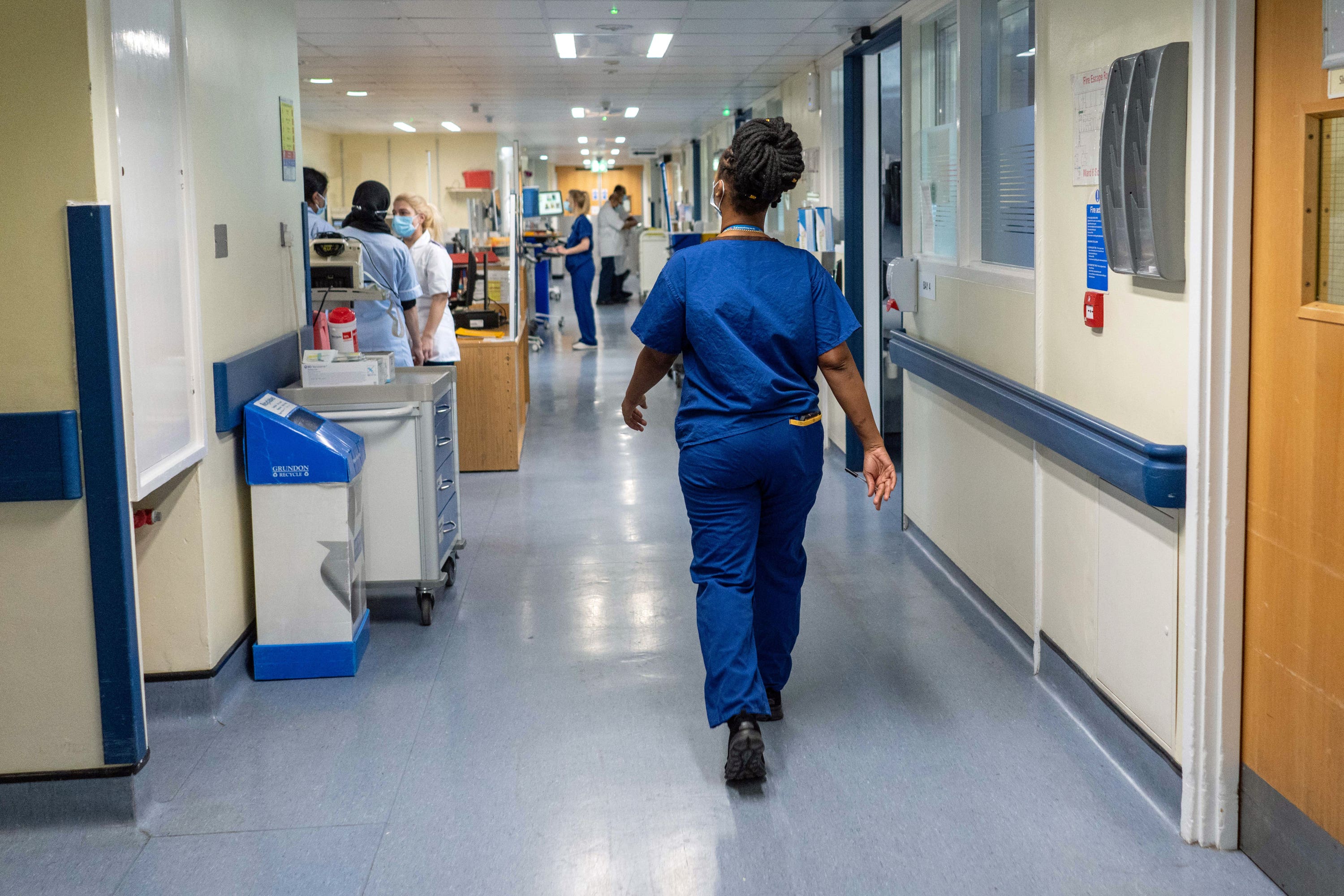The breast cancer crisis is a symptom of deeper problems in the NHS
Editorial: A shortage of specialist doctors and nurses means dangerous delays for thousands

Our report of the alarming state of breast cancer care in the UK is only the latest symptom of a deep malaise in the National Health Service. Every assumption that lay behind the government’s injunction during the coronavirus pandemic to “protect the NHS” seems now to have been unfounded.
It was assumed then that if we could prevent the health service from being “overwhelmed” by the surge in Covid cases, it would be able to manage the crisis and return to normal thereafter. This evolved into the assumption that the pandemic would generate a backlog of cases but that NHS activity could be stepped up and the backlog cleared within a few years.
That assumption is now giving way to the realisation that it will take much longer, and will cost much more, to get the waiting list under control. The list has continued to grow and is now heading towards 8 million cases in England, representing about 6.5 million individuals – more than one in 10 of the population. The rate of the rise has slowed over the past year, and Victoria Atkins, the new health secretary, hailed the most recent figures showing a statistically insignificant fall as if they marked a turning point.
Every apparent turning point in the NHS crisis since the pandemic has, however, been eclipsed by new signs that the problems of the service are deep-seated and long-lasting. Our report on the problems in breast cancer care is only the latest of these.
The main problem is a shortage of specialist doctors and nurses, which in turn reflects the lack of funds to train them and pay them enough to keep them. The NHS received large amounts of short-term emergency additional funding during the pandemic, but it needs a large and sustained increase in core funding in order to catch up and keep up with the demands of a growing and ageing population.
At some point, this will require difficult questions to be asked about whether, in addition to more public spending, the NHS needs to be organised differently. It is striking, for example, that the ambulance crisis of 2022 was largely solved by the end of that year simply by a nationally coordinated focus on bottlenecks, in particular handover times. The ambulance service is still not as quick as it should be but the worst of the long waits for urgent cases have been eliminated by dint of better management.
Similarly, there is some evidence that surgery could be more productive if patients are managed in parallel rather than sequentially, making maximum use of surgeons’ time while employing more (cheaper) support staff.
Wes Streeting, the shadow health secretary, has also shown some imagination in advocating greater use of the private sector to deliver NHS services. These ideas tend to produce a negative reaction among NHS staff but, if services free at the point of need can be delivered more effectively, such doubts should be overcome – and it may take a Labour government, like Richard Nixon going to China, to overcome them.
Meanwhile, the one immediate problem that makes it impossible to start turning the NHS round is the junior doctors’ strike in support of the demand for a pay rise greater than that enjoyed by other NHS staff. Ms Atkins made a good start in changing the government’s tone towards negotiations, which she then spoilt by describing junior doctors as “doctors in training”. However, her blunder does not alter the weakness of the junior doctors’ case or the destructiveness of their strikes.
They should end their dispute and join in the constructive effort to secure a better-funded, better-organised NHS, including for breast cancer patients.



Join our commenting forum
Join thought-provoking conversations, follow other Independent readers and see their replies
Comments